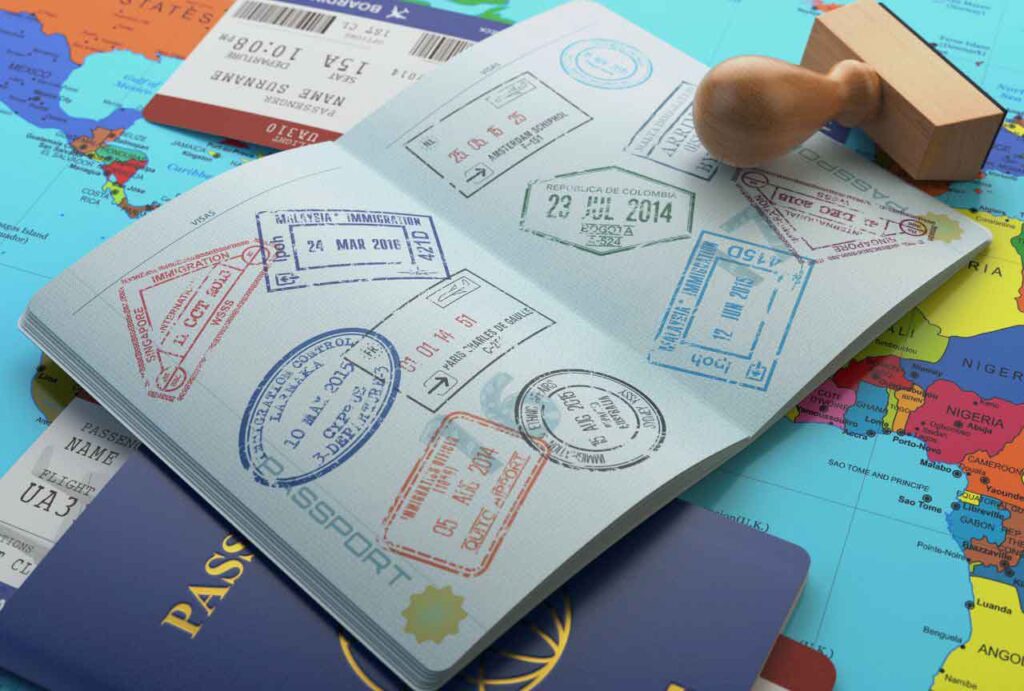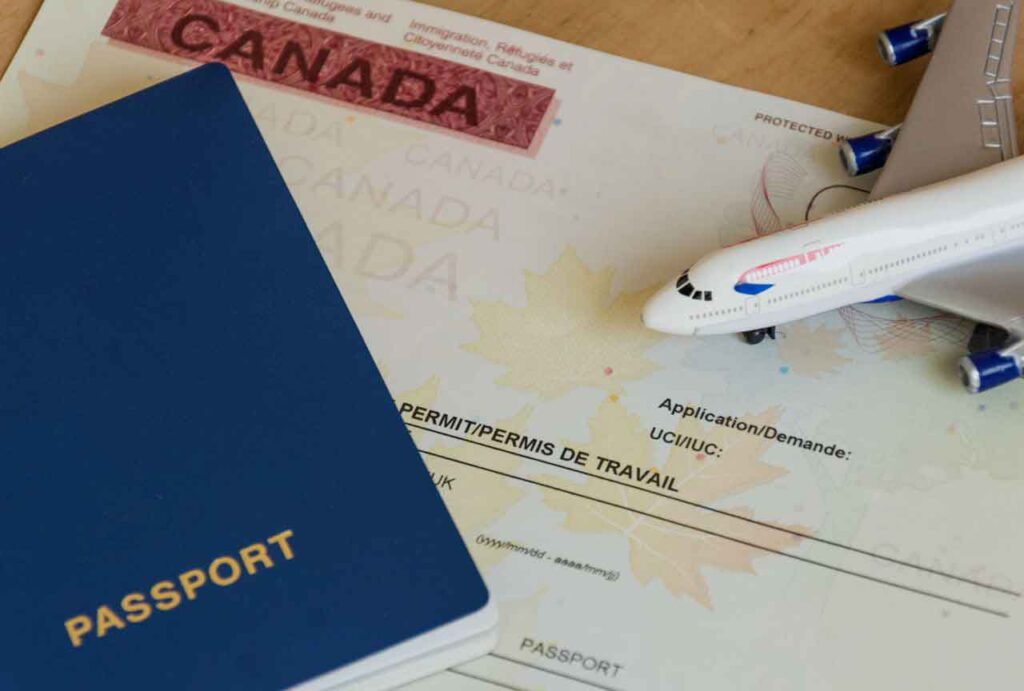In an era marked by increasing international migration, the notion of dual citizenship has become a focal point for individuals navigating the complexities of global citizenship.
Embracing ties to multiple countries, people often seek to understand the intricacies of dual citizenship – a legal status that allows individuals to be citizens of two countries simultaneously.
This article will shed light on the countries that allow dual citizenship, which do not, and whether having dual citizenship is a good or bad thing.
Understanding What is Dual Citizenship:
Dual citizenship, also known as dual nationality, refers to an individual’s legal status as a citizen of two countries. This status allows people to enjoy the rights and privileges of citizenship in both nations, affording a unique set of opportunities and responsibilities. The acceptance of dual citizenship varies widely among countries, with some nations embracing the concept, while others restrict or outright forbid it.
How Dual Citizenship is acquired:
This legal arrangement typically arises through factors such as birth, marriage, or naturalization. Individuals may acquire dual citizenship by being born in a country that grants citizenship based on birthplace, having parents from different nations, or through a legal process known as naturalization.
Understanding the laws governing dual citizenship is crucial, as it involves navigating the often intricate legal landscapes of multiple countries.
Dual Citizenship vs Permanent Residency: Why Citizenship is Better
Citizenship and permanent residency each have their own advantages, and the choice between them depends on individual circumstances and preferences. Here are reasons why citizenship might be considered better than permanent residency:
1. Full Rights and Privileges: Citizens generally enjoy all the rights and privileges of a country, including the right to vote and participate in political processes. Permanent residents might have limitations on political participation.
2. No Renewal or Expiry: Citizenship is often permanent and doesn’t require renewal, unlike permanent residency, which may need periodic renewal. This can provide a sense of stability and security.
3. Security and Stability: Citizenship provides a higher level of security, as it is usually not affected by changes in government policies. Permanent residency might be subject to changes in immigration rules.
4. Global Mobility: Some countries allow their citizens to travel visa-free or with greater ease to a wider range of countries compared to permanent residents.
5. Inheritance Rights: Citizens often have more straightforward inheritance rights, and citizenship can be passed down to future generations.
6. Access to Certain Jobs: Some positions, especially in government or sensitive sectors, may be reserved for citizens only.
It’s essential to carefully weigh the benefits of citizenship against any potential drawbacks and consider individual priorities and long-term goals when deciding between citizenship and permanent residency.

List of countries that allow dual citizenship:
Europe:
The average time it takes to obtain dual citizenship in European countries via naturalization ranges from 3 to up to 10 years. The following is a list of European countries that allow dual citizenship:
- Albania
- Belgium
- Bosnia and Herzegovina
- Croatia
- Cyprus
- Czech Republic
- Denmark
- Finland
- France
- Germany
- Greece
- Hungary
- Iceland
- Ireland
- Italy
- Kosovo
- Latvia
- Lithuania
- Luxembourg
- Malta
- Netherlands
- North Macedonia
- Norway
- Poland
- Portugal
- Romania
- Serbia
- Spain
- Sweden
- Switzerland
- United Kingdom
North America:
The time it takes to obtain dual citizenship in a North American country via naturalization ranges from 2 to 5 years. The following is a list of North American countries that allow dual citizenship:
- Canada
- Mexico
- Nicaragua
- Panama
- Saint Vincent and the Grenadines
- United States (with certain restrictions)
South America:
Obtaining citizenship in one of the South American countries takes between 2 and 5 years, especially through marriage. The following is a list of South American countries that allow dual citizenship.
- Argentina
- Bolivia
- Brazil
- Chile
- Colombia
- Ecuador
- Guyana
- Peru
- Suriname
- Uruguay
- Venezuela
Asia:
Due to their policies and restrictions, Asian countries are the most difficult to obtain dual citizenship in. The average duration varies widely. Here is a list of countries where you ‘may’ be able to obtain dual citizenship:
- Bangladesh
- Cambodia
- Fiji
- India
- Lebanon
- Nepal
- Pakistan (with some restrictions)
- Philippines
- Sri Lanka
- Syria
- Timor-Leste
- Turkey
Africa:
Do you want to obtain an African citizenship through one of their countries? Although there are no significant benefits other than political or family reunification, you can obtain dual citizenship in a number of African countries, which are listed below:
- Botswana
- Burkina Faso
- Cabo Verde
- Central African Republic
- Comoros
- Côte d’Ivoire
- Democratic Republic of the Congo
- Equatorial Guinea
- Eswatini
- Ethiopia
- Gabon
- Gambia
- Ghana
- Guinea
- Guinea-Bissau
- Kenya
- Lesotho
- Liberia
- Madagascar
- Malawi
- Mali
- Mauritius
- Mozambique
- Nigeria
- Rwanda
- São Tomé and Príncipe
- Senegal
- Seychelles
- Sierra Leone
- South Africa
- South Sudan
- Tanzania
- Togo
- Uganda
- Zambia
- Zimbabwe
Oceania:
- Australia
- New Zealand

Also Read: Middle East Countries Ranked By Quality Of Life – 2023 Report
List of Countries that don’t allow Dual Citizenship:
Whereas some countries allow and permit dual citizenship, others will oblige you to give up your other citizenship, and still others will not allow you to obtain citizenship. Here is a list of countries that do not permit dual citizenship:
Europe:
- Austria
- Bulgaria
- Estonia
- Georgia
- Japan
- Liechtenstein
- Monaco
- Montenegro
- Nepal
- Norway
- Singapore
- Slovakia
- Slovenia
- Russia
- Ukraine
North America:
- Antigua and Barbuda
- Belize
- Dominica
- Grenada
- Saint Kitts and Nevis
- Saint Lucia
- Saint Vincent and the Grenadines
South America:
- Paraguay
Africa:
- Algeria
- Angola
- Cameroon
- Chad
- Djibouti
- Eritrea
- Libya
- Mauritania
- Morocco
- Namibia
- Niger
- Somalia
- Sudan
- Tunisia
Asia:
- Afghanistan
- Bhutan
- China
- Iran
- Kuwait
- Laos
- Oman
- Qatar
- Saudi Arabia
- United Arab Emirates
Oceania:
- Federated States of Micronesia
- Kiribati
- Marshall Islands
- Nauru
- Palau
- Tuvalu
Note: Some policies change from time to time, and there are multiple complexities in some countries to obtain citizenship, which is why we included them in the list of don’t allow countries.
Some countries, such as Malaysia, Indonesia, Thailand, and others, have more complex laws in terms of residency and citizenship that we haven’t included in the lists.
Is Dual Citizenship Bad?
Contrary to some misconceptions, dual citizenship is not inherently ‘bad.’ It offers numerous advantages, such as increased mobility, cultural connections, and access to the rights and privileges of each citizenship.
However, individuals must be aware of the specific laws and regulations governing dual citizenship in each country involved. If a country contradicts with your culture and ethics, then you’re subject to many difficulties.
Also Read: The Ultimate Guide to Immigration: From Dream to Reality
Dual Citizenship Challenges and Considerations:
While citizenship offers various advantages, it’s important to consider the challenges and factors that might influence the decision. Here are some challenges and considerations:

1. National Service Obligations: In certain countries, citizens might be subject to compulsory military service or other national obligations. This should be considered, especially for individuals with objections to such requirements.
2. Language and Cultural Requirements: Citizenship processes often include language and cultural knowledge tests. This might pose a challenge for individuals who are not fluent in the official language or unfamiliar with the country’s culture.
3. Residency Requirements: Many countries have residency requirements for citizenship. Prospective citizens may need to reside in the country for a specific period before becoming eligible, which might impact work or personal commitments.
4. Financial Costs: Obtaining citizenship can involve application fees, legal expenses, and other costs. These financial considerations should be factored into the decision-making process.
5. Tax Implications: Citizenship can have implications for tax obligations, including potential obligations to report global income. Seeking advice on tax implications is crucial.
6. Political and Social Climate: The political and social climate of a country can change, impacting citizens’ experiences. It’s essential to assess the stability of the country and potential implications for citizens.
7. Exit Restrictions: Some countries impose restrictions on citizens leaving the country, especially during times of crisis. This may limit international mobility.
9. Integration Challenges: Becoming a citizen involves integrating into the local community. For some, adapting to new social norms and practices might pose challenges.
Considering these challenges and factors alongside the benefits is crucial for making an informed decision about pursuing citizenship. Individuals should carefully assess their own circumstances and consult with legal or immigration professionals if needed.
Conclusion:
The decision to pursue citizenship is a significant step that involves a careful balance of benefits, challenges, and personal considerations.
While citizenship offers privileges such as voting rights, enhanced travel opportunities, and a sense of belonging, individuals must navigate challenges like residency requirements, financial costs, and potential dual citizenship restrictions.
The choice between citizenship and permanent residency depends on individual goals, lifestyle preferences, and the specific circumstances of each person. It’s essential to thoroughly research and understand the implications, seek professional advice when needed, and weigh the pros and cons before embarking on the journey toward citizenship.
By making an informed decision, individuals can shape their future in a way that aligns with their aspirations and enhances their overall life experience.



